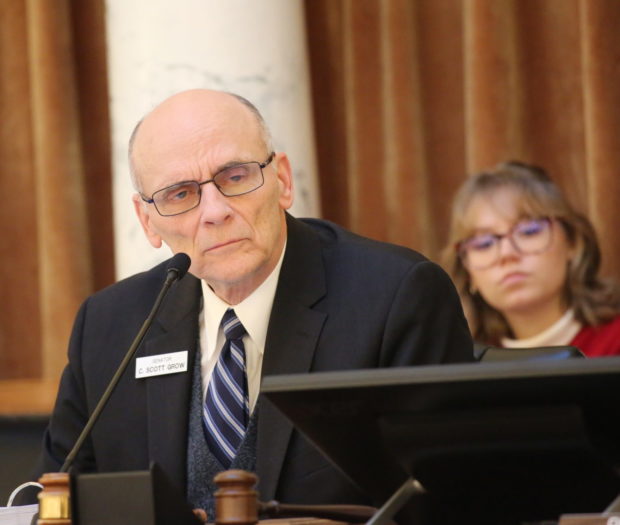A complicated property tax overhaul is headed to Gov. Brad Little’s desk.
After an hour’s debate, the Senate overwhelmingly passed House Bill 292 — which promises up to $355 million in immediate property tax cuts, but also carries heavy short- and long-term implications for public schools.

Supporters described the bill as an intricate, House-Senate compromise, designed at providing ongoing help to homeowners wrestling with rising property taxes. “This is only the beginning,” said Sen. C. Scott Grow, R-Eagle, one of HB 292’s co-sponsors.
Supporters and opponents alike questioned whether the tax relief would sustain itself.
“I don’t think we’re providing a perfect long-term fix here,” said Senate Majority Leader Kelly Anthon, R-Burley. But like all Senate Republicans, Anthon voted for HB 292 — in part because of its promise of “noticeable” immediate tax relief.
HB 292’s initial property tax cuts would kick in by the end of the year. Schools would feel the impacts soon after.
The bill promises to provide about $100 million to schools, in its second and third year on the books. The schools would be required to use their share of this money for property tax relief: paying off existing bonds and levies, saving for future building projects, or bonding against their share of the state’s money.
The $100 million would go into a newly created “school district facilities fund,” which would include some one-time money the state has set aside for tax relief. Lawmakers could opt to put additional money in the facilities fund in future years.
Meanwhile, HB 292 would also eliminate the March school election date — the most common date for bond issues and levies. Last week, school districts asked for $1 billion in ballot measures; about $275 million of the proposals passed.
Education lobbyists oppose the elimination of the March election date. And school elections were a focal point in Monday afternoon’s debate.
Sen. Chris Trakel, R-Caldwell, called the low-turnout, standalone school elections a waste of money — costing anywhere from $6,000 to $85,000, based on the counties he canvassed last week.
“A small fraction of people come out for these elections, and decide on a massive amount of property taxes,” he said.
Saying HB 292 promises only short-term tax relief, while permanently eliminating the March election, Sen. Carrie Semmelroth said she couldn’t accept the tradeoff.
“Why are we putting the schools at risk?” said Semmelroth, D-Boise.
In the end, HB 292 passed the Senate on a 32-3 vote, with fellow Boise Democrats Ali Rabe and Melissa Wintrow joining Semmelroth in opposition. The lopsided, bipartisan vote mirrors the House’s 63-7 vote for the bill less than a week ago.
